I was recently in a conversation with local clergy in Lower Merion as we continue to share our stories and the work of our communities with one another. Our conversation prompt this particular afternoon as we circled up in small groups was this: “What are your personal memories surrounding the Rev. Dr. Martin Luther King Jr.?”
For some, it was memories of his preaching and activism; for others, it was their memories of his assassination. For those of us born after Dr. King’s death, we shared memories of learning of his legacy in school, and in our churches and synagogues as children. An Augustinian priest in my group shared that 1968 was his novitiate year in the seminary, which meant that he was isolated from all news and didn’t learn of his death until months later.
 For me, I honestly couldn’t remember when I first learned about Dr. King. But I do have strong memories of studying about him and being in conversation with classmates about his work and legacy as a part of my peacemaking degree program at George Washington University.
For me, I honestly couldn’t remember when I first learned about Dr. King. But I do have strong memories of studying about him and being in conversation with classmates about his work and legacy as a part of my peacemaking degree program at George Washington University.
As we read Strength to Love, a collection of his sermons preached in his pulpits in Montgomery and Atlanta and then re-preached around the country, one of my classmates commented: “It is just amazing that he would have preached such powerful sermons without ever thinking they would be published like this!” Now, I was still a few years away from seminary myself, but I could hear the naiveté in that statement.
It was in these early sermons that Dr. King was working out what would become his theology of non-violence and his articulation of how the power of non-violence could overcome the greatest evils of this world: poverty, racism and war.
Going back today and reading through these sermons I first encountered at age 21, it is remarkable how relevant they are to the work we continue to be called to do as Christians in the world:
The ultimate measure of a man is not where he stands in moments of comfort and convenience, but where he stands at time of challenge and controversy. The true neighbor will risk his position, his prestige, and even his life for the welfare of others. In dangerous valleys and hazardous pathways, he will lift some bruised and beaten brother to a higher and more noble life.
When our days become dreary with low-hovering clouds and our nights become darker than a thousand midnights, let us remember that there is a great benign Power in the universe whose name is God, and he is able to make a way out of no way, and transform dark yesterdays into bright tomorrows. This is our hope for becoming better men. This is our mandate for seeking to make a better world.
May we continue to be renewed by this hopeful message, as individuals and as a community of believers, to be faithful to Christ’s call to love in the face of hate, and to be inspired by Dr. King’s resonant voice that reminds us that within each of us is the strength to put that kind of radical love into the world.




